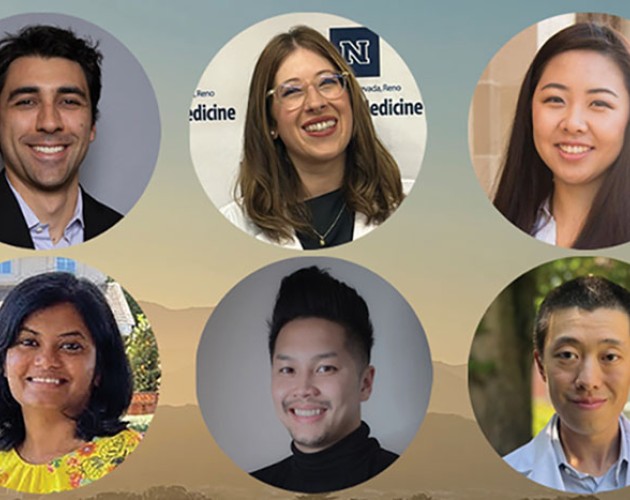Meet Health Professions Graduate Katie Fenton

Katie Fenton loved the high adrenaline that comes from being a military nurse—a path she's followed since graduating with a bachelor's degree in nursing from the University of Pennsylvania seven years prior. Though the traditional next step was to become a nurse practitioner, Fenton realized that role wouldn't give her the autonomy she wanted. So she set her heart on a new challenge: medical school.
Challenge accepted: This fall, Fenton will begin attending Cooper Medical School of Rowan University (Camden, N.J.). But she wouldn’t have made it so far so quickly without UC Berkeley Extension's Post-Baccalaureate Health Professions Program. "None of my nursing classes at the University of Pennsylvania counted toward the post-baccalaureate, so I had to start from scratch," says Fenton. "Even though I loved the military, if I had stayed in the Navy and at Camp Pendleton, and just taken classes on the side, it would have taken me five or six years to get through my classes."
The med school application is such a process. Having the advisers walk me through the process made me feel sure that all the steps were taken.
As a financially independent student, Fenton found Extension to be the most economically viable option, as well as the best fit for a working professional as she was taking courses while working as a nurse at Highland Hospital. While those perks are not to be underestimated, it was the level of support she received from Extension that convinced Fenton to enroll. "When I visited Extension before getting out of the military, a program director showed up out of the blue and met with me and was just so welcoming," Fenton recalls. "I thought, 'I need a hand, and this is going to be a good hand.'
"After being out of school for almost eight years, to come back into this very rigorous program and shoot for this crazy dream of med school—I just wanted guidance, someone on my side who has successfully transitioned nontraditional students into what they want to do," continues Fenton. "It reset my brain—to come here with all these younger people who are so motivated and have other careers, trying to do all these science courses together."
Did your medical background ease the transition?
There was a lot of overlap in concepts, but the role of the nurse and the role of the doctor are far different than I originally thought: the way you look at a patient, and the way you frame how to figure out what's going on. As nurses, we are trained in critical thinking, patient comfort, family dynamics and figuring out the next step. All that happens with physicians, too, but they approach it from a very different angle.
So you came into the program with a healthy nursing perspective. But you've also been out of school for a while.
I was just trying to learn to do classwork again. And then when I had success the first semester, I thought, "I can do this!" It definitely reassured me that I could still study and learn and be successful as a student.
The health seminars were really helpful, too, because med school application is such a process, and I had no idea what I was getting into. There are so many details that go into it; it's like a full-time job. Having the administration and advisers to walk you through the process made me feel sure that all the appropriate steps were taken. If I were doing it by myself, I would definitely be worried that there's something I'm missing.
It makes you feel like this nerd wearing the biggest cape and crown, and it's an amazing feeling.
While you were working at Highland Hospital, were you able to take lessons learned in class to your work with patients?
Organic chemistry and biochemistry made me think a lot about medications. Why did that person's blood sugar fall? It goes back to the liver and the Krebs cycle. So much of what happens is behind the scenes, and I know I'm supposed to give this medicine and I know it will help, but why?
It just makes you feel like this nerd wearing the biggest cape and a crown, and it's an amazing feeling. It also worked the other way, such as when we were talking about biology and genetic mutations and using it for good. I would take what I'd seen from before starting the program, like my experience working with a unit that dealt with injured soldiers, and how they used cloning creatively to compensate for missing body parts.
What advice would you give somebody who's thinking about going into a post-bacc program?
If you need to have a full-time job, think you can handle a four-hour class once a week, and have enough self-discipline to study throughout the week so you have the material ready for the next class, I think it's a great choice. All of Extension's post-bacc classes were great. Extension doesn't give out easy As, and you will have to work hard, but they want you to succeed. You're going to get a lot of bang for your buck here, that's for sure.
